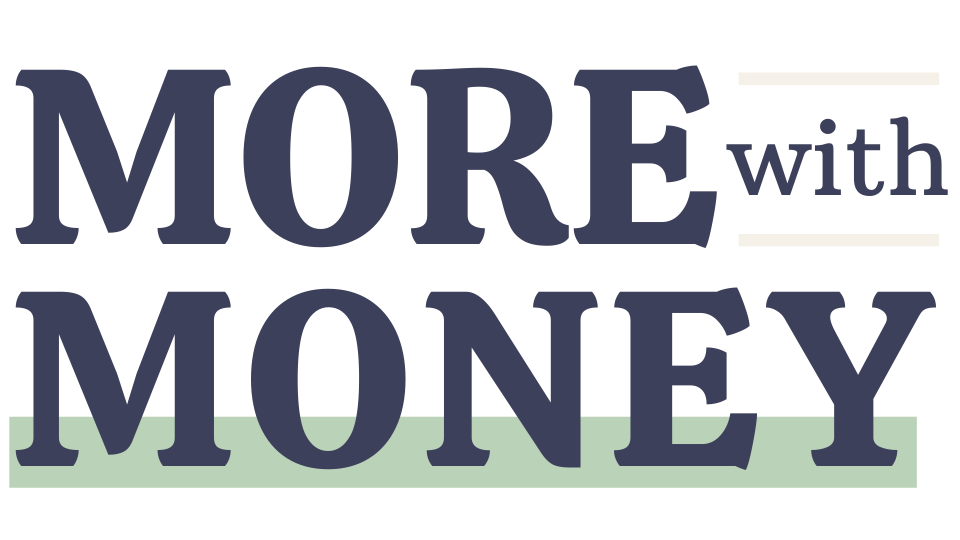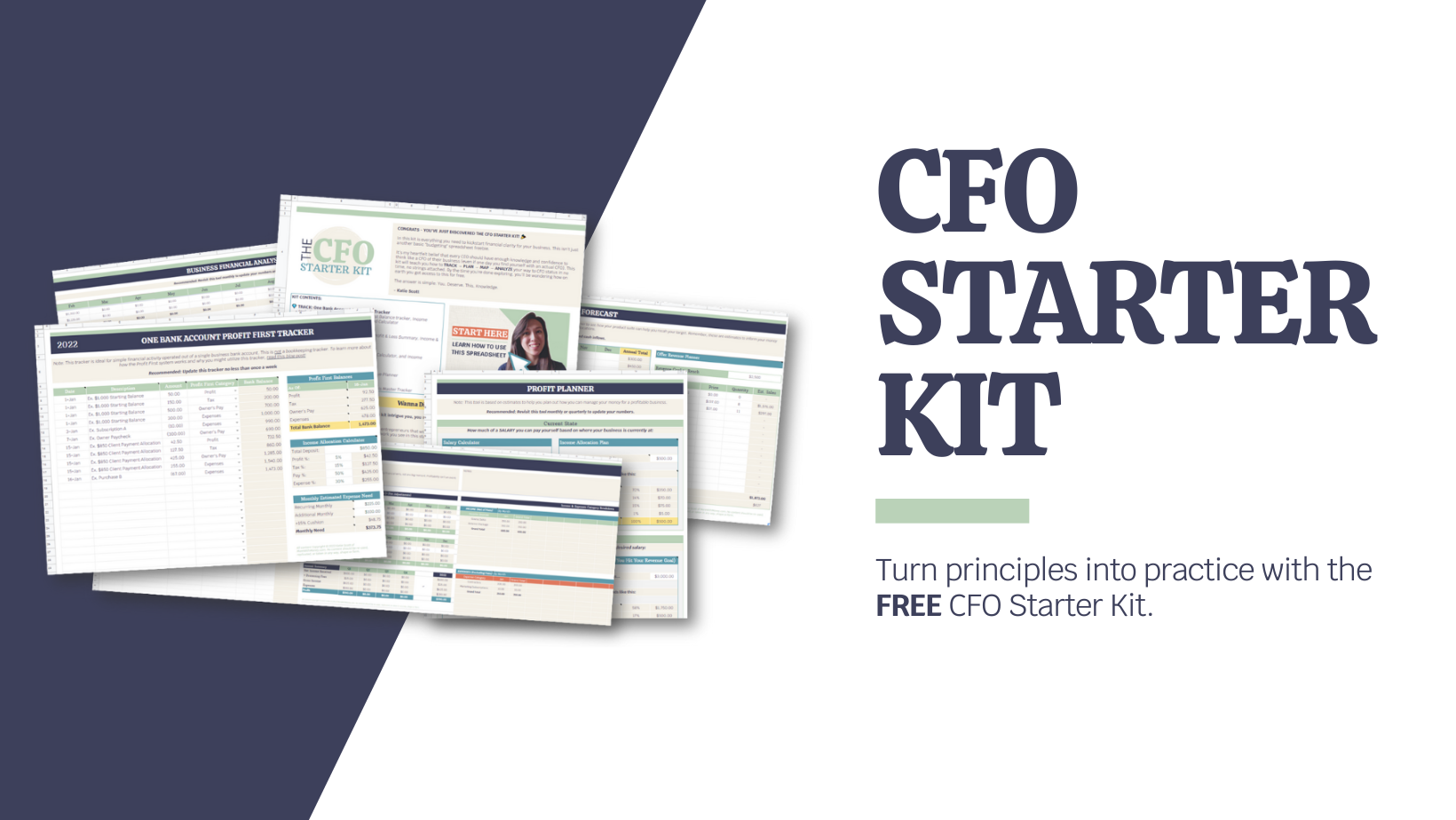How to Properly Separate Your Business Finances
As an entrepreneur ready to get serious about growing their business, your VERY FIRST step should be to ensure you've properly separated your business and personal finances. It's a step you've probably heard of before, but if you've skipped it, I assure you that you're creating much bigger problems for yourself in the long run. So let's talk about how to do it right!
Why Separate Your Business Finances?
There are several reasons why you should separate your business and personal finances, so I’ll focus on just the most important:
Organization: Recordkeeping, budgeting, and financial awareness are significantly easier when you aren’t co-mingling your funds. How much money is currently available to your business right now? Do you have what you need to cover your regular business costs? Where did the $1,000 deposit you received from a new client last month end up going? These kinds of questions are so much simpler to answer when you have a designated place to look for your business finance activity.
Compliance & Protection: In some circumstances, it’s possible that you’re actually legally required to keep your business and personal funds separated. A prime example is if you’ve filed to structure your business as a Limited Liability Corporation (LLC). The whole point of the LLC is to create a legal barrier between you and your business, so that your business risks and obligations are separate from your personal assets. (In other words, if a client sues your business, your personal home isn’t in danger.) However, if you co-mingle your funds, you’re essentially treating your own assets like your personal and business funds are the same, so you forfeit the legal separation that protects you with an LLC.
Identity: This one isn’t talked about as much, but there is immense value in being able to mentally separate yourself from your business when you create separate structures like this. You are a huge component of your business, yes, but it’s not healthy or sustainable to feel like you ARE your business. Creating a separate “identity” as an entrepreneur is going to give you the boundaries you need to truly rest and step away when you need to.
How to Manage Money Between Accounts
So what does it look like to manage money across (at least) two separate bank accounts? This question is especially relevant if you’re still in the early stages of business and are still using personal funds to cover your costs.
To fund your business, all you need to do is transfer in the money you need from your personal account as you need it. When you do it this way instead of just running business transactions through your personal accounts, you or your accountant will easily be able to identify these transfers as “owner contributions” to your business (not income). Additionally, you’ll be able to then run all business expenses out of the business account, which will keep your records spotless.
To pay yourself or cover personal expenses, you just do the reverse! Transfer the money from the business into your personal account. Even if your business’ funds are covering your personal expenses, you’ll be able to easily classify the transfers as “owner’s draw” from the business (not expenses). This will help you and/or your accountant ensure that you’re only tracking and claiming actual business expenses for your taxes.
Pro Tip! When your business income is a bit more consistent, try and set a regular salary goal for yourself and only draw out that amount at predetermined pay dates. While your business income will always be somewhat variable, this can introduce some much-craved stability into your personal finances. If you follow the Profit First system, you can learn how to manage a “savings fund” of sorts for your own paycheck!
What to Look For in a Bank
Unfortunately, there is no one-size-fits-all banking solution. If you’re happy with your current personal bank, it’s typically easiest to just opt into their existing business banking solutions.
However, if you’re looking for something different or aren’t happy with what they have to offer for businesses, I recommend thinking about what features are important to you first, then searching for banks that match that criteria.
Here are some potential considerations you can use as a starting point:
Physical Location vs. Online-Only
What does their customer service look like?
Do they offer options to add accountant access to the account? Do they integrate with bookkeeping software?
How established are they? How long have they existed? Are they insured by the Federal Deposit Insurance Corporation (FDIC)?
Do they have any promotional offers for opening a business account with them?
What is their mobile banking experience like?
What kinds of fees do they have? How much are they?
What other banking products do they offer?
What security and fraud protection features do they have?
Action Steps to Get Started
Open a separate business checking and savings account.
Consider the Profit First system for additional accounts!
If using a credit card, have a separate one designated for business use (be extremely careful using a credit card, especially as a start-up!)
Set up your business payment processor accounts as needed (may include PayPal, Stripe, Venmo for Business, etc.)
Connect your accounts together
Reviewing your most recent bank statement, identify any recurring expenses you have that need to be moved over. Dedicate an hour this week to updating your payment information.
And that’s it! By the end of this week, you can have your accounts completely separated and ready for streamlined, organized money management. I promise, you’ll thank yourself for it later!
Are you ready to take your financial journey to the next level? Then you may be ready to check out the More With Money Academy!
This ever-growing collection of online courses and trainings are specially designed to support entrepreneurs like you on your path to financial wellness. The Academy contains carefully designed courses that are easy to understand and implement so that you can be empowered with the practical concepts, streamlined systems, and powerful mindset to transform your business and personal finances.
Click here to explore what the More With Money Academy has to offer!
Pin for later
I'd love to continue the conversation in the comments! Feel free to share your thoughts.
Until next time!








